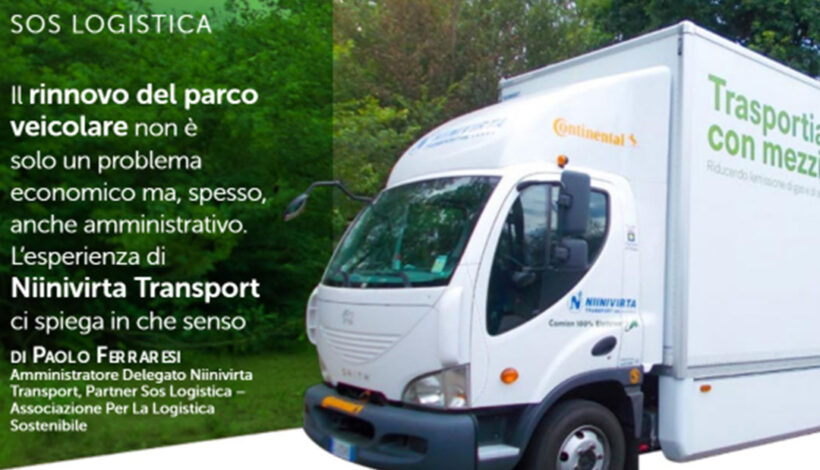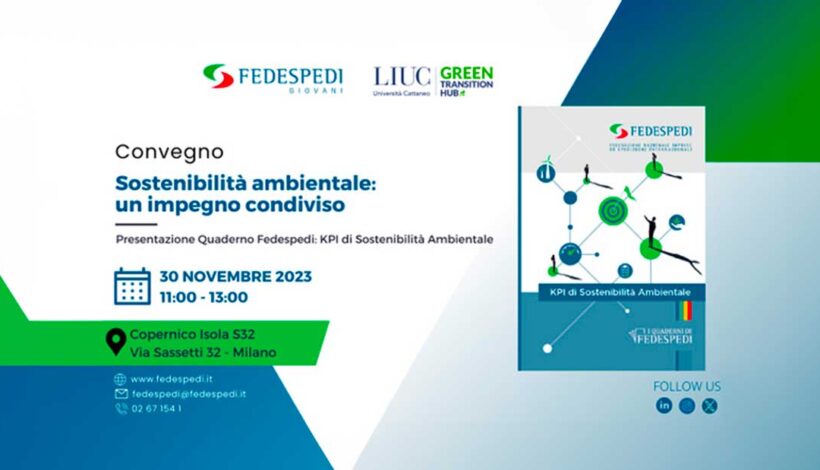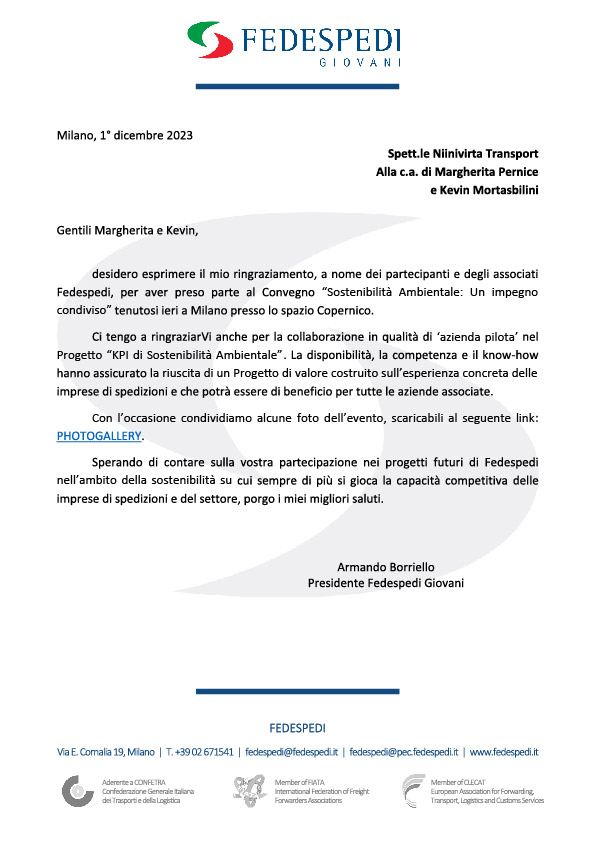The renewal of the vehicle fleet is not only an economic problem but, often, also an administrative one.
The experience of Niinivirta Transport explains to us in what sense BY PAOLO FERRARESI CEO Niinivirta Transport, Partner SOS Logistica – Association for Sustainable Logistics
Translating sustainability policies into concrete actions is complex, tiring and expensive. The entire supply chain needs to work as a team to achieve tangible results. From this perspective, the Public Administration is one of the key actors, from which one would expect a role as facilitators and not as obstacles for the entrepreneurs most motivated to change, like me.
The statement seems obvious and not even very original, yet it becomes necessary when one of the most acclaimed sustainable technologies at the moment is being hindered: electric.
THE NIINIVIRTA TRANSPORT CASE
What’s happening? My company, Niinivirta Transport, has already invested over 5 million euros since 2014 for a solar power system and for an electric traction fleet which today includes 16 commercial vehicles of various types and capacities. Unfortunately, however, in the coming years we will find ourselves suffering a heavy penalty in daily operations in Milan. From 1/10/2023, in fact, electric vehicles over 7.5m can no longer circulate in zone C during daytime (7.30am-7.30pm), allowing a certain quantity of goods that could be transported with 0 emissions (co -me already happened in the last 10 years) is instead delivered with smaller, more polluting, traditional vans.
A bureaucratic paradox, evidently: the length limit which, moreover, in other municipalities reaches up to 9m, ends up prevailing to the unfair detriment of sustainability. The Municipal Administration, following arguments from the company, including having been excluded from the experimental counting of vehicles that accessed zone C via electricity, issued temporary exemptions until 09/30/2025, but expressing in any case the peremptory will not to renew the exemptions after this date.
THE CONSEQUENCES
Personally, I believe this decision is contrary to the desire to decongest traffic, reducing emissions into the atmosphere, as would happen with the use of 100% electric traction, and this causes us great economic damage, as well as stopping the conversion of medium-heavy vehicles, used for urban logistics, by any other operator who wants to take this path after us. A road that the Administration should make downhill and which, on the contrary, has become uphill. It is clear that the decision aims to defend legitimate interests, let’s say safety, but also harms others, primarily collective health, by discouraging zero-emission freight transport.
Sustainable mobility cannot be based only on the circulation of small vehicles for the management of small parcel deliveries, but must include the transport of goods for businesses/shops in the centre, with important supply volumes, which can be consolidated on a single larger electric vehicle , for multiple recipients.
Why, for example, instead of banning electric vehicles over 7.5m, not let them circulate in preferential lanes?




